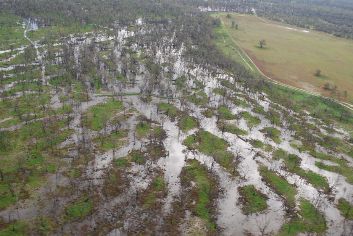 The drought in New South Wales has officially ended after more than nine years.
The drought in New South Wales has officially ended after more than nine years.
In the latest State Government update, none of the state’s regions are drought-declared.
Primary Industries Minister Steve Whan says it is the news farmers have been waiting for.
“We are expecting at the moment a record crop from wheat and other grains over this next few weeks and months,” he said.
“I guess the only threat to that of course is that, in some areas, it is now quite waterlogged and that can have an impact on the grains, and of course the locusts.”
John Gall, a farmer from Langawirra Station north-east of Broken Hill, says the area is enjoying one of its best seasons in 40 years.
“There’s been above average rainfall almost in all the areas and given where it was this time last year, where the area was in probably the worst condition that many of us can remember, the turnaround has been amazing,” he said.
“The feed source – there’s almost total cover, most of the dams are full, the weather conditions have been ideal.”
Another farmer from the state’s Riverina area says he is having his best season since 1999.
Buster Fairburn says steady rain over the past few months has significantly improved his crops.
“We’re growing wheat, canola, lupins, barley, growing all cereals all that sort of stuff, but they all look very, very good,” he said.
“We’re about 120 kilometres north of Wagga Wagga so we’re in a very good area here, but it’s been very, very tough the last eight or 10 years.”
At the height of the dry spell in 2003, 99.5 per cent of New South Wales was in drought.
The Opposition’s primary industries spokesman, Duncan Gay, says while the end of the drought is great news, farmers still need financial support.
“The financial drought continues. It hasn’t grown money,” he said.
“These communities, many of them won’t have real income into their communities for another 18 months or more.
“The small businesses, the farmers, the people that have been out of work, there are still huge holes to fill.”

